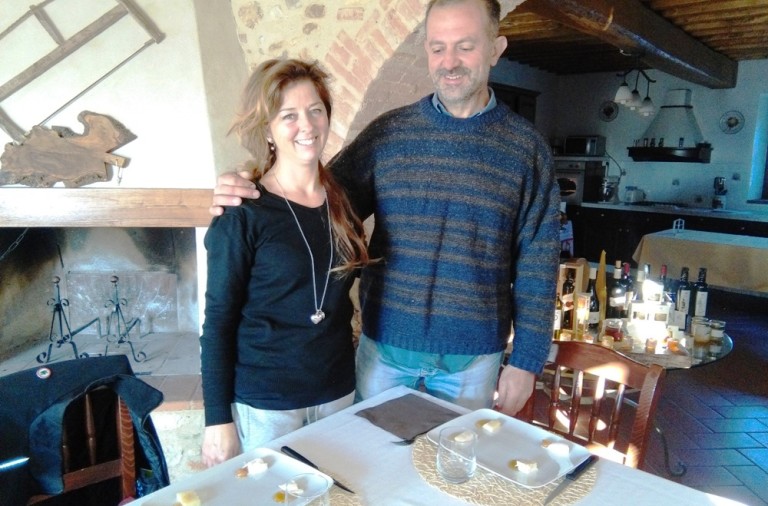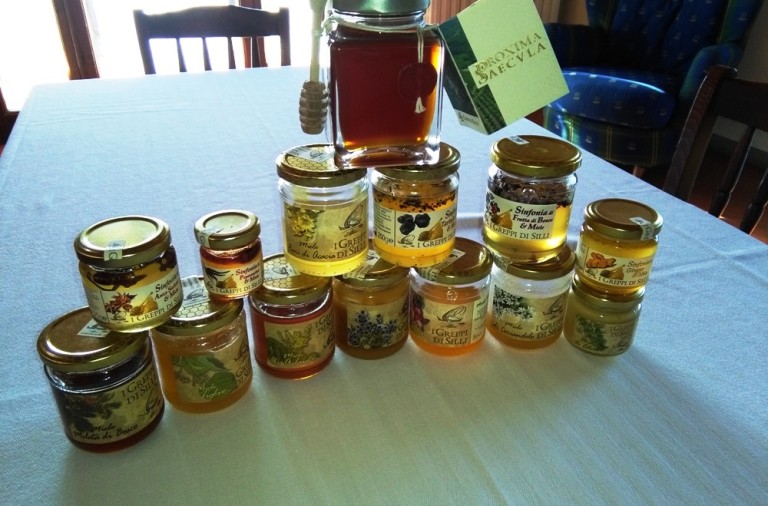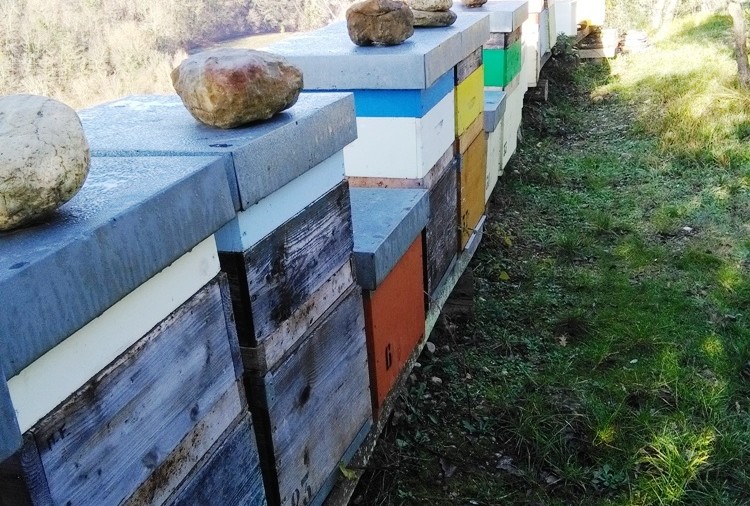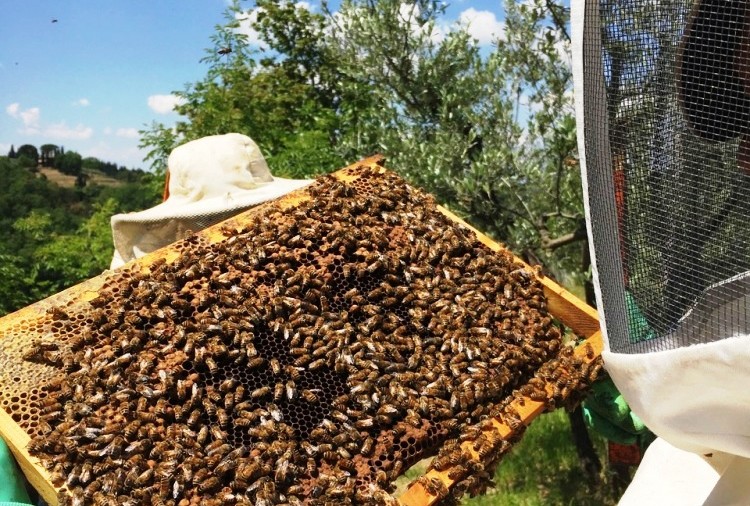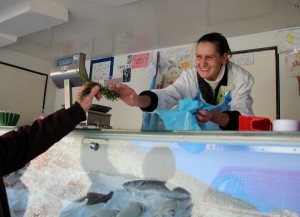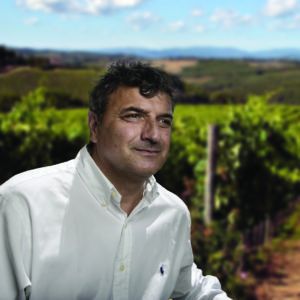Articolo disponibile anche in: Italian
On the hill between Mercatale and the road that leads to Montefiridolfi, immersed in the silence of nature is the Greppi di Silli farm.
It gets its name from the country village called Silli and the typical terraced hill, called “greppo” in slang.
We met Michele Porcu, who works in the family business, to hear about their traditions of olive oil and wine production and of another, less well known product, which exudes the passion inherited from his grandfather as well as the desire for new experimentation that Michele looks for every day: the production of honey.
“Everything began in 1934”, Michelle tells us, “when my grandfather’s family crowned their dream and from being simple sharecroppers became owners of a winery for which they paid 72,000 lira in order to be able to leave something to their children. Here they were able to produce olive oil and wine, taking advantage of the better exposed zones. This allowed them to work and pay their debts and build a new house in the 1950s”.
In his spare time, Michele’s grandfather cultivated his hobby of beekeeping. “Grandpa had a few beehives here and there, but quickly my uncle, and then myself became interested as well, especially when we were able to build a farm stay/agritourism”.
It was an exchange of ideas with foreign guests which led Michele to admire and enjoy the beauty of honey. Michele began to think about a product which carries the soul of the territory and which could also be sold abroad.
“In the production of honey,” continues Michele, “I saw this opportunity. A brand-new product to create with my uncle. We were open to innovation and we became affiliated with Apitoscana, which helps us work with the bees to the best of our ability, keeping in mind climactic changes, illness and the market. In fact, the beekeeping that I practice is completely diverse from that of my grandfathers”.
We arrive by foot in front of many bee houses, all in a row, one for each family. The bees are currently in lethargy, protecting the queen bee who will begin the production of honey in the spring.
“In the spring,” Michele explains, “the bees go outside, and with an incredible sense of direction they exchange information about which flowers should be pollinated. This is called the ‘fonte nettifera’. Then they returned to their prospective houses”.
Michele’s words let us understand how much passion and respect go into this work, a reciprocal exchange, in which excess honey is collected as a gift without ever taking away what the bees need for their existence. They are constantly assisted, especially in the spring – summer, in order to guarantee harmony in the apiary.
Our meeting ends at the table with Michele’s kind wife, Ilaria, who has prepared a tasting of many types of honey. Says Michele, “Mine is a constant experiment which has brought me to move families of bees to other zones of Tuscany in order to enlarge honey production. In this way, I have obtained an infinite amount of different honeys according to the environment in which they are positioned, according to the season and the flowers where they place their nectar. Thanks to this, I can offer my clients not only honey from chestnut, acacia and millefiori, but from ailanthus, coriander, heather, ivy, and many others”.
In fact, we had the honor of tasting many aromas and flavors. They are all delicious and different, and we thank the bees for their “nectar of the gods”.
Silvia Luis
